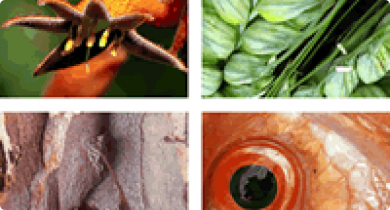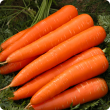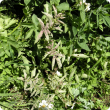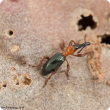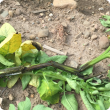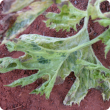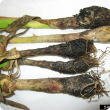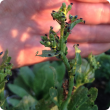Biosecurity
Biosecurity is fundamental for safeguarding our valuable agricultural resources against the threat and impacts of pests, weeds and diseases (pests).
Biosecurity is the management of the risk of animal and plant pests and diseases entering, emerging, establishing or spreading in Western Australia, to protect our economy, environment and the community.
To protect Western Australian agricultural industries from pests the Department of Agriculture and Food, Western Australia:
- Works with stakeholders to identify and manage biosecurity risks.
- Develops legislation.
- Establishes import controls.
- Conducts inspections.
- Provides quarantine services as required.
To find out more about what we do to protect agricultural production and export opportunities within the State please search our website.
Articles
Pages
Filter by search
Filter by topic
- (-) Remove Crops filter Crops
- (-) Remove Horticulture filter Horticulture
- (-) Remove Vegetables filter Vegetables
- Plant biosecurity (19) Apply Plant biosecurity filter
- Pests, weeds & diseases (19) Apply Pests, weeds & diseases filter
- Diseases (15) Apply Diseases filter
- Potatoes (12) Apply Potatoes filter
- Tomatoes (7) Apply Tomatoes filter
- Pests (6) Apply Pests filter
- Crop diseases (4) Apply Crop diseases filter
- Fungi (4) Apply Fungi filter
- Viruses & virus-like (3) Apply Viruses & virus-like filter
- Onions (3) Apply Onions filter
- Bacteria (3) Apply Bacteria filter
- Nursery & cutflowers (2) Apply Nursery & cutflowers filter
- Pest insects (2) Apply Pest insects filter
- Grapes & wine (2) Apply Grapes & wine filter
- Fruit (2) Apply Fruit filter
- Garlic (2) Apply Garlic filter
- Capsicums and chillies (2) Apply Capsicums and chillies filter
- Livestock species (1) Apply Livestock species filter
- Mites & spiders (1) Apply Mites & spiders filter
- Sweet potato (1) Apply Sweet potato filter
- Table grapes (1) Apply Table grapes filter
- Livestock & animals (1) Apply Livestock & animals filter
- Food, export & investment (1) Apply Food, export & investment filter
- Agricultural exports (1) Apply Agricultural exports filter
- Beans (1) Apply Beans filter
- Bees (1) Apply Bees filter
- Citrus (1) Apply Citrus filter
- Leeks (1) Apply Leeks filter

